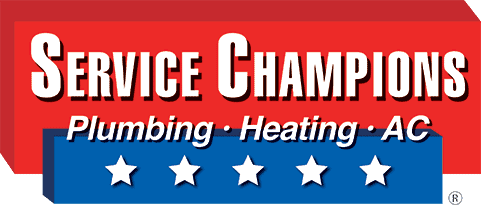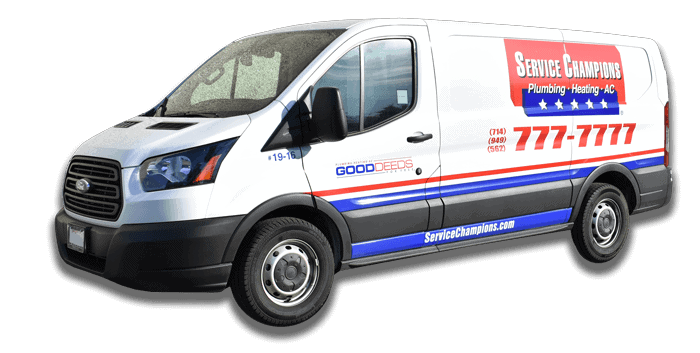What’s the Right Size Air Conditioner for My House?
A reliable air conditioning system is an absolute must when it comes to beating the heat. But, with so many AC unit sizes available, many homeowners wonder, what’s the right size air conditioner for my house?
Selecting the right size AC unit is essential to keep your space comfortable and energy bills in check. Whether your home is large or small, understanding what size AC system you need is crucial to ensuring you stay relaxed and comfortable all summer.
Understanding BTU Outputs
If you’re feeling lost when choosing the right air conditioner for your home – don’t worry; you’re not alone. But with a bit of knowledge about the power needs of your space, you’ll be ready to tackle the AC selection process with confidence.
What is BTU?
BTU stands for British Thermal Unit. It is a traditional unit of heat or thermal energy used primarily in the United States and the United Kingdom. BTUs are commonly used to measure the heat output of heating and cooling systems, such as furnaces, air conditioners, and boilers.
Why Are They Used?
BTUs are used in air conditioners to describe their cooling capacity or performance. The cooling capacity of an air conditioner is the amount of heat it can remove from space over a given period.
Measuring the cooling capacity in BTUs allows for standardized comparisons between different air conditioning units and helps customers choose the right size and capacity for their needs.
How to Check Your AC’s BTU
To check your air conditioner’s BTU rating, find the label or nameplate on your AC unit that describes the make, model, and technical specifications. This label is usually found on the side or back of the unit, near the electrical connections or compressor.
Does One Size Fit All?
No, one AC size does not fit all since cooling capacity requirements will vary depending on the room size, amount of insulation, and ceiling height. Choosing an air conditioner with the appropriate BTU rating for your specific needs is crucial to ensure efficient cooling and energy usage.
Types of Central Air Conditioners
 When looking for a new air conditioning unit, there are various options to choose from. To ensure maximum comfort in your home, you’ll need to weigh the pros and cons of each type. Here’s a list of the most popular central air conditioners available:
When looking for a new air conditioning unit, there are various options to choose from. To ensure maximum comfort in your home, you’ll need to weigh the pros and cons of each type. Here’s a list of the most popular central air conditioners available:
- Split System – A split system central air conditioner consists of an indoor unit with an evaporator coil and an outdoor unit with a compressor and condenser coil. The indoor unit removes heat and humidity from the air, while the outdoor unit dissipates the heat to the outside.
- Packaged Unit – A packaged central air conditioner combines the evaporator, compressor, and condenser into a single outdoor unit. It connects to the ductwork in the building and is suitable for homes without space for a separate indoor unit.
- Ductless Mini-Split – A ductless mini-split system works similarly to a traditional split system but does not require ductwork. It has an outdoor unit and multiple indoor air handlers that can be individually controlled, providing targeted and efficient cooling for different zones in a building.
- Heat Pumps – A heat pump is a versatile central air conditioner that can heat and cool a home by transferring heat indoors and outdoors. It can be more energy-efficient, especially in moderate climates.
Understanding Energy Efficiency Ratings
Air conditioners and cooling systems have a two-pronged approach to energy efficiency: the Energy Efficiency Rating (EER) and the Seasonal Energy Efficiency Ratio (SEER). The EER focuses on a specific temperature and humidity level, measuring the cooling capacity in BTUs divided by the electrical input in watts.
The SEER represents average efficiency over a whole cooling season. The numbers all point in one direction – the higher the EER and SEER values, the better the energy efficiency.
Purchase Considerations
When choosing an air conditioning system, several factors must be considered to ensure the most suitable option is selected.
Price Range
Air conditioner prices can fluctuate greatly, depending on the model, brand, and features. For instance, window air conditioners usually range from $150 to $800, while central air systems can have significant costs depending on the desired size and features.
 Financing
Financing
Many retailers and manufacturers offer financing options to make purchasing an air conditioning unit more affordable. These usually provide fixed-interest loans with flexible repayment plans and promotional offers such as no interest if paid in full within a certain period.
Tax Credits
There may be additional incentives available for purchasing energy-efficient air conditioning systems. These could include federal and local tax credits and state or utility rebates. It is important to research all the available options before making a purchase.
Rebates
Some air conditioner manufacturers may offer rebates and other incentives for their products. This could include a discounted price, free installation, or extended warranties. Contacting the manufacturer directly is the best way to learn about any available rebate program.
Don’t let the heat get to you this summer! By researching all of your options and better understanding of energy efficiency ratings, you can make an informed decision and find the right air conditioning system for your home. Ready to purchase a new HVAC unit? Contact Service Champions today for more information.


 Financing
Financing